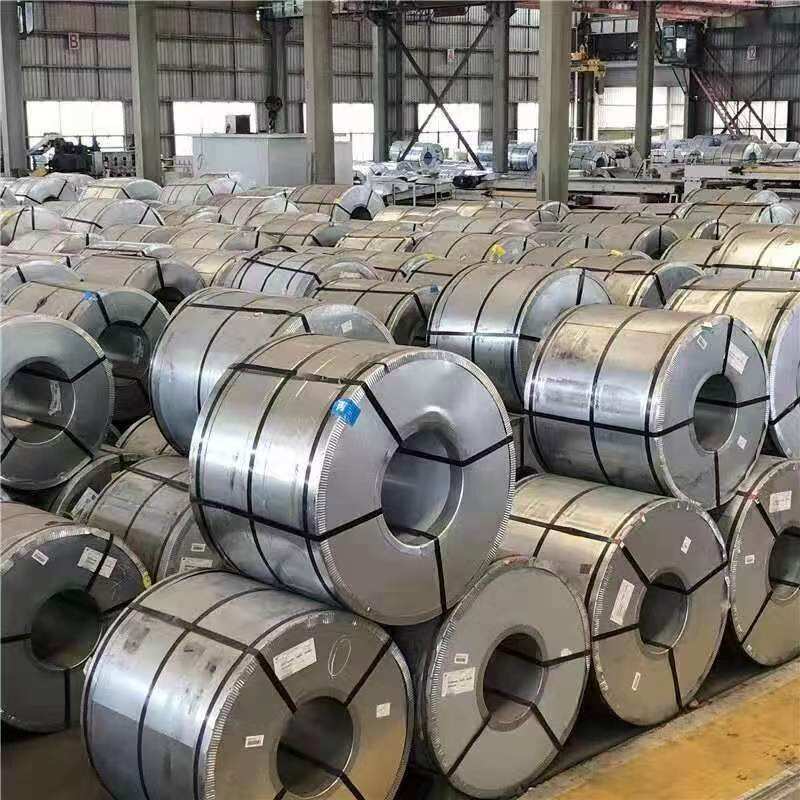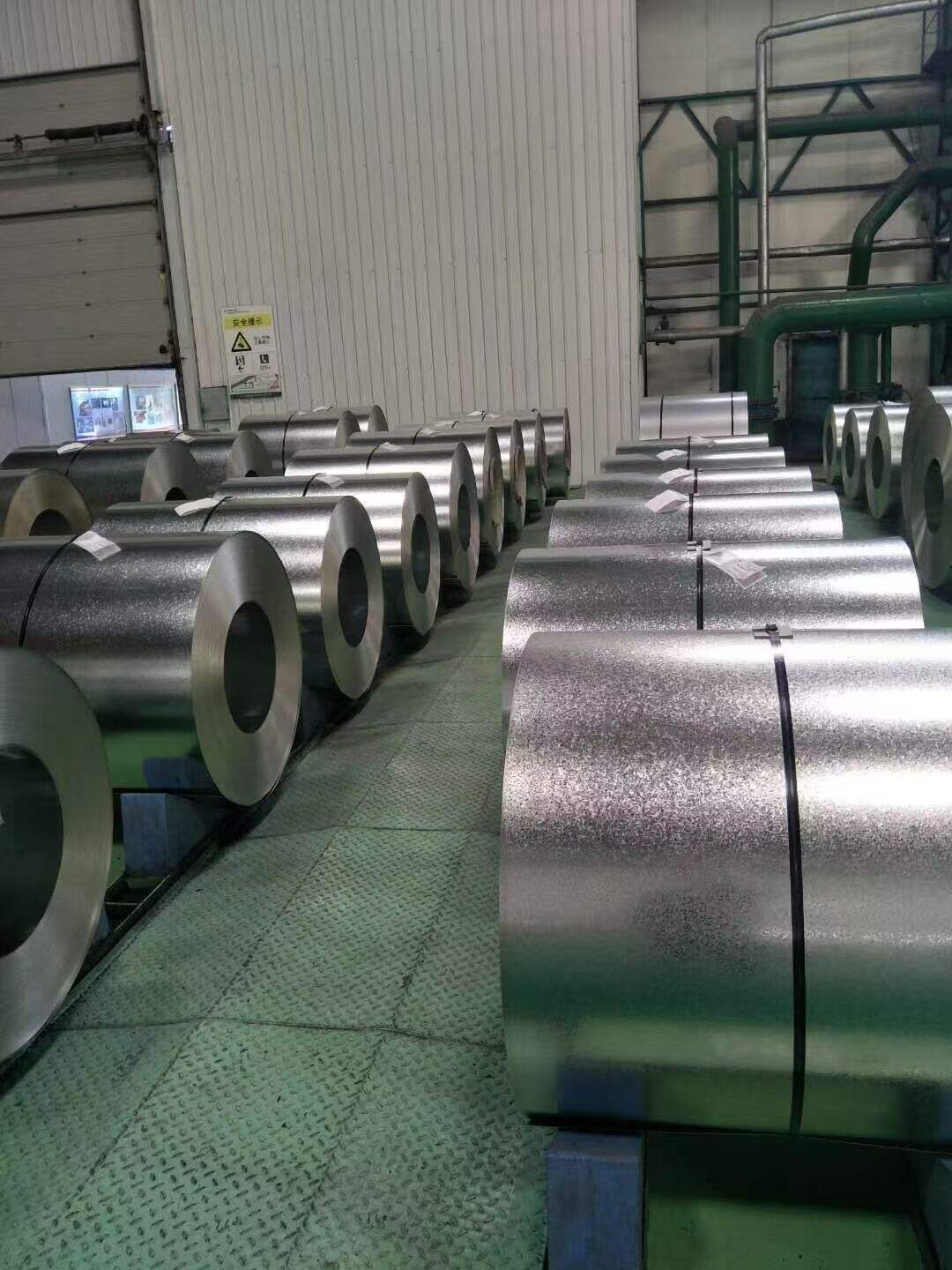Разбиране на основите при избора на стоманени рула
Стоманените рула представляват основен компонент в различни производствени и строителни приложения, като служат като основа за безброй пРОДУКТИ които използваме ежедневно. От автомобилни части до битова техника, изборът на подходящата железна кула може значително да повлияе върху качеството, издръжливостта и икономичността на крайния продукт. Вземането на обосновано решение изисква дълбоко разбиране на свойствата на стоманените рула, приложението им и производствените изисквания.
При избора на рулона стомана производителите трябва да имат предвид множество фактори, които влияят върху решението им. Правилният рулон стомана може да оптимизира производствените процеси, да намали отпадъците и да осигури оптимална производителност на крайния продукт. Напротив, изборът на неподходящ вариант може да доведе до производствени предизвикателства, увеличени разходи и влошено качество на продукта.
Основни свойства на стоманените рулони
Физически характеристики и размери
Физическите атрибути на стоманените рулони имат съществено значение за тяхната приложение пригодност. Широчината, дебелината и товароподемността са основни параметри, които директно повлияват производствените възможности. Дебелината на стоманените рулони обикновено варира от ултратънки материали до тежкотоварни варианти, като всеки служи за конкретни промишлени цели. Широчината на рулона трябва да отговаря на спецификациите на обработващото оборудване и окончателните размери на продукта.
Ограниченията за товароносност отиват далеч зад рамките на простите числа и засягат изискванията за обработване, решенията за съхранение и съвместимостта с обработващото оборудване. Разбирането на тези физически параметри гарантира безпроблемна интеграция в съществуващите производствени процеси и оптимално използване на материала.
Клас и химичен състав
Класът и химичният състав на стоманените рулони определят техните механични свойства и експлоатационни характеристики. Съдържанието на въглерод, легиратите елементи и методите на обработка влияят върху якостта, пластичността и формоустойчивостта. Високоякостните стоманени рулони предлагат по-висока издръжливост, но може да изискват специализирани методи за формоване, докато меките стоманени варианти осигуряват отлична формоустойчивост за сложни форми.
Различните индустрии изискват специфични химични състави, за да отговарят на своите уникални изисквания. Например, при автомобилните приложения често се изискват напреднали високоякостни стоманени ленти, за да се постигне баланс между намаляване на теглото и защита при катастрофа, докато при строителните приложения може да се предпочита устойчивост към атмосферни влияния и структурна цялост.
Повърхностни обработки и покрития
Опции за защитно покритие
Повърхностните третирания значително подобряват производителността и продължителността на живот на стоманените ленти. Галванизацията, цинковото покритие и различни други защитни слоеве предпазват основния материал от корозия и околната среда. Изборът на подходящо покритие зависи от предвиденото приложение, условията на излагане и желания срок на служене.
Съвременните технологии за покрития предлагат иновативни решения за специфични предизвикателства. Напреднали полимерни покрития осигуряват превъзходна устойчивост към химикали, докато специализираните обработки могат да подобрят адхезията на боята или да създадат уникални повърхностни изгледи. Разбирането на предимствата и ограниченията на всяка опция за покритие гарантира оптимална защита и производителност.
Типове повърхностни обработки и качествени стандарти
Качеството на повърхностното покритие влияе пряко както на естетическата привлекателност, така и на функционалните характеристики. От огледални повърхности до текстурирани покрития, всяка опция служи за специфични цели. Производствените процеси, изискващи боядисване или допълнителни повърхностни обработки, се възползват от внимателно подбрани видове покрития, които насърчават правилното сцепление и външен вид.
Стандартите за качество на покритията на стоманени рулоны варират в зависимост от индустрията и приложението. Външните панели на автомобили изискват висококачествена повърхност с минимални дефекти, докато конструкционните елементи могат да допускат стандартни търговски покрития. Разбирането на тези изисквания помага при избора на икономически ефективни решения, без да се компрометира качеството.

Програмни разисквания
Изисквания и стандарти на индустрията
Различните индустрии поддържат специфични стандарти и изисквания за избора на стоманени рулоны. Производителите на автомобили често посочват напреднали високопрочни стоманени рулоны за компоненти с критично значение за безопасността, докато производителите на битова техника може да отдадат приоритет на формируемостта и качеството на повърхността. Разбирането на специфичните изисквания за всяка индустрия осигурява спазване на стандарти и оптимална производителност в предвиденото приложение.
Регулаторните стандарти и изисквания за сертифициране също влияят върху избора на стоманени рулони. Строителни норми, правила за безопасност и екологични съображения могат да изискват определени свойства на материала или видове покрития. Актуалното познаване на тези изисквания предотвратява проблеми със спазването на нормите и осигурява приемливостта на продукта.
Методи за обработка и производство
Предвидените производствени процеси значително повлияват избора на стоманени рулони. Операциите по формоване, изискванията за заваряване и методите за сглобяване изискват конкретни свойства на материала. Стоманените рулони трябва да притежават подходяща формуемост за огъване и щамповане, като едновременно запазват структурната си цялост по време на целия производствен процес.
Възможностите на оборудването и параметрите на обработката също влияят върху избора на стоманена лента. Системите за контрол на напрежението, скоростите на обработване и товаро-разтоварното оборудване трябва да отговарят на свойствата на избрания материал. При вземането на решение относно избора имайте предвид както текущите производствени възможности, така и потенциалните бъдещи подобрения в процеса.
Съображения за разходи и фактори от веригата за доставки
Анализ на разходите за материали
Съображенията за разходи излизат извън основната цена на тон стомана. Добивът от материала, ефективността на обработката и намаляването на отпадъците значително повлияват общата икономическа ефективност. Материали от по-висок клас могат да имат по-високи цени, но да предлагат по-добри експлоатационни характеристики и по-малко отпадъци, което потенциално може да намали общите производствени разходи.
Пазарните условия и динамиката на веригата за доставки оказват влияние върху наличността на материали и ценообразуването. Дългосрочните договори, ангажиментите за обем и отношенията с доставчиците могат да повлияят както върху стабилността на разходите, така и върху достъпността на материалите. Разработването на стратегически подходи за осигуряване на суровини помага за управление на колебанията в цените, като същевременно се гарантира постоянството на качеството на материалите.
Изисквания за логистика и складиране
Съображенията относно транспортирането и складирането значително повлияват общата цена на употребата на рулони от стомана. Оборудването за правилно боравене, складовите помещения и системите за управление на запасите трябва да отговарят на спецификациите на избрания материал. При някои видове покрития или повърхностни финишни обработки може да се наложи складиране при климатичен контрол, за да се запази качеството.
Времето за доставка, минималните количество за поръчка и графиките за доставка влияят върху планирането на складовите запаси и управлението на паричния поток. Балансирането на тези фактори с производствените изисквания помага за оптимизиране на работния капитал, като същевременно се осигурява ефективна дейност. При избора на доставчици и спецификации за стоманени рулони имайте предвид както непосредствените нужди, така и дългосрочната стабилност на веригата за доставки.
Често задавани въпроси
Какви фактори определят качеството на стоманен рулон?
Качеството на стоманения рулон се определя от няколко ключови фактора, включително химичен състав, механични свойства, повърхностна обработка, размерна точност и цялостност на покритието. Производствените процеси, качеството на суровините и мерките за контрол на качеството по време на целия производствен процес също значително влияят върху крайното качество на продукта.
Как влияе дебелината на покритието върху производството на стоманен рулон?
Дебелината на покритието влияе пряко върху устойчивостта на корозия, издръжливостта на повърхността и общия живот на продукта. По-дебелите покрития обикновено осигуряват подобрена защита, но могат да повлияят на изискванията за формоване и обработка. Оптималната дебелина на покритието зависи от специфичните изисквания за приложение и условията на излагане на околната среда.
Какви са основните изисквания за съхранение на стоманени рулони?
Стоманените рулони изискват подходящи условия за съхранение, за да се запази тяхното качество и да се предотврати повреда. Основните аспекти включват контрол на температурата и влажността, правилно подпърждане и методи за струпване, както и защита от външни фактори. Съхранението в закрито помещение, използване на подходящо оборудване за обработване и редовни проверки помагат да се гарантира цялостността на материала.



